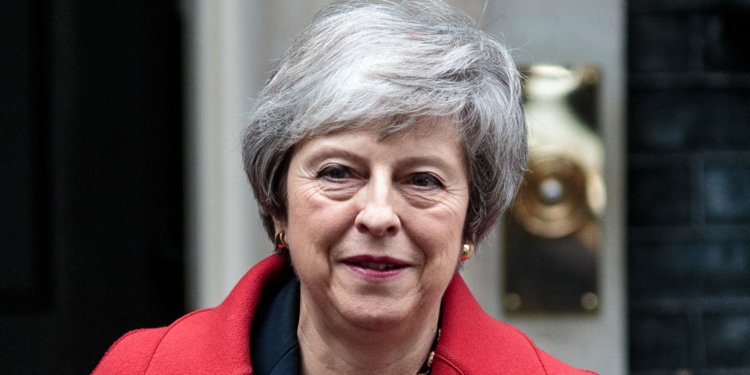LONDON, (Reuters) – British Prime Minister Theresa May today abruptly postponed a parliamentary vote on her Brexit deal, throwing Britain’s plan to leave the European Union into chaos after admitting that she faced a rout.
May’s move on the eve of the scheduled parliamentary vote opens up an array of possible outcomes, ranging from a disorderly Brexit with no deal to another referendum on EU membership. May’s own position could be in jeopardy, with calls from opposition parties for her to step aside.
May said she still intended to put her deal to lawmakers. But she would first ask the EU for more “reassurances” over the main bone of contention: a “backstop” to ensure no hard border on the island of Ireland, which her critics say means Britain could end up indefinitely subject to EU rules after it leaves.

Announcing the delay, May was laughed at by some lawmakers when she said there was broad support for the deal and that she had listened carefully to different views over it – the result of 18 months of tortuous negotiations.
“If we went ahead and held the vote tomorrow the deal would be rejected by a significant margin,” May told parliament, adding that she was confident it was the right deal.
“We will therefore defer the vote scheduled for tomorrow and not proceed to divide the House at this time,” May said. The United Kingdom would meanwhile step up contingency planning for a no-deal Brexit when it is due to leave on March 29.
Sterling skidded to its weakest level since April 2017, falling to $1.2527. It was trading at $1.50 on the day of the 2016 Brexit referendum.
May accepted there was concern among lawmakers about the Northern Irish “backstop”.
The provision is intended as an insurance policy to avoid a return to border checks between the British-ruled province and the EU-member Irish Republic. But it also goes to the heart of the Brexit dilemma: allowing Britain to set its own rules outside the EU without disrupting trade.
The backstop requires Britain to abide by some EU rules indefinitely – potentially long after it quits the bloc and gives up say in setting them – unless some future mechanism can be found to ensure a friction-free land border. That prospect is rejected both by supporters of a cleaner break with the EU and those who want to stay inside it.
BREXIT REVERSED?
May said the broader question was whether parliament wanted to deliver on the will of the people for Brexit, or open up the divisions in the world’s fifth largest economy with another referendum.
“If you take a step back, it is clear that this house faces a much more fundamental question: does this house want to deliver Brexit?” May asked.
The leader of the opposition Labour Party, Jeremy Corbyn, said the United Kingdom no longer had “a functioning government” and called on May to “make way” for a Labour government.
The decision to halt the vote came just hours after the EU’s top court ruled that Britain could unilaterally withdraw its decision to leave the bloc on March, 29.
The government did not spell out the mechanism for delaying the vote scheduled for Tuesday.
The speaker of the lower house of parliament, John Bercow, called for lawmakers to be given a vote on the decision to defer the vote on the deal itself.
“I politely suggest that in any courteous, respectful and mature environment, allowing the house to have a say would be the right and, dare I say it, the obvious course to take,” Speaker Bercow said.







